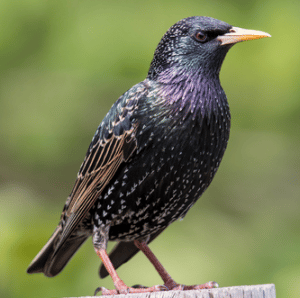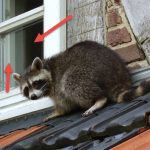
Is It Legal to Remove Birds Nest from Your Property in Canada?
Finding an unexpected bird’s nest on your property can be exciting for nature lovers but also inconvenient depending on the location. Maybe it’s blocking your dryer vent or tucked into a precarious nook. Can you legally remove or relocate it? The rules are strict to protect nesting birds in Canada.
Under the federal Migratory Birds Convention Act, it’s illegal to disturb or destroy the active nests of most bird species across Canada. This includes the nests themselves as well as any eggs or baby birds inside. Penalties like fines or jail time can apply. However, you may be permitted to carefully relocate an inactive, empty nest – but the rules vary by province so check local regulations first.
Familiarizing Yourself with Birds Nest Protection Laws in Canada
Under the Migratory Birds Convention Act, it is illegal to disturb, damage or destroy the nests or eggs of migratory bird species in Canada. This applies to active nests with birds or eggs inside. The law covers most species of birds in Canada, with a few exceptions like introduced house sparrows.
If you need to prune trees or complete construction work during nesting season (approximately April to August), it’s crucial to first inspect for active bird nests and avoid disturbing or destroying them. If an active nest is found, you must establish a buffer zone around the nest and avoid any disruptive activities until the birds have naturally left the nest. Check with your provincial/territorial government for specific nest buffer zone requirements.
Protected Birds Species
The Migratory Birds Convention Act protects over 300 species of migratory birds that breed in Canada. This includes virtually all songbirds like robins, sparrows, and warblers, as well as raptors, shorebirds, seabirds and more. Any nests or eggs of these birds cannot be disturbed during the breeding season.
Many provinces and municipalities also have their own legislation extending protections to non-migratory birds. For example, in Ontario the Fish and Wildlife Conservation Act prohibits harming nests or eggs of nearly all native bird species, whether migratory or non-migratory. Other provinces like BC and Alberta have similar blanket protections for all bird species nesting within their borders.
Compliance with Birds Nest Protection Laws
In Canada, those cute little bird nests deserve some serious respect. The federal Migratory Birds Convention Act makes it illegal to disturb or destroy the nest, eggs or flightless young of migratory bird species. That covers most of our feathered friends, from robins to raptors.
Before trimming trees, tearing down buildings or otherwise disrupting potential nesting spots, do your due diligence. Have a professional biologist survey the area first, especially during prime nesting season between April and August. It’s a minor inconvenience compared to the major legal trouble of running afoul of federal law. Egg on your face is one thing, hefty fines are another.
Valid Reasons for Relocating Birds Nest
Despite our best efforts, sometimes a nest winds up in an utterly incompatible spot. Maybe construction accidentally disturbed it during the non-nesting season. Or perhaps a well-meaning bird set up housekeeping somewhere hazardous, like a warehouse machinery aisle. When human health and safety is legitimately at risk, nest relocation may be permitted.
The rules get tricky, though. You’ll need approval from authorities and must hire experts to properly move the nest. Strict protocols exist to minimize disruption and ensure babies don’t get accidentally orphaned. Relocating is an absolute last resort for active nests – avoiding the situation entirely is always preferable. A little thoughtful planning goes a long way towards co-existing with our feathered friends.
Seeking Professional Guidance for Birds Nest Relocation
If you find yourself needing to relocate an active bird nest, don’t try winging it yourself. These situations require expert care and handling per federal regulations. One careless move could create a tragic outcome for the vulnerable chicks and eggs involved.
Your best bet is to seek guidance from a qualified wildlife removal specialist or avian biologist right away. They have the permitting, training and experience to assess the situation properly and take the appropriate next steps. This may include carefully moving the nest, securing approval from authorities, or implementing proper deterrents and excluders.
Tips for Ethically Moving a Birds Nest
When moving a birds nest it’s important to prioritize the safety and wellbeing of the birds. By following these guidelines, you can ensure a relocation of the nest while minimizing disruption to the birds and their environment.
- Obtain the permits
Before relocating a bird’s nest make sure to check regulations and acquire any required permits. This step ensures compliance with laws protecting bird nests.
- Seek advice from experts
Consulting with individuals like wildlife rehabilitators or ornithologists can provide insights and support throughout the process of relocating the nest. They can offer expert advice tailored to the bird species and situation at hand.
- Timing is crucial
The timing of nest relocation is key to its success. It’s best to move a bird’s nest during periods of activity such as offseason to minimize disruptions. This helps reduce the chances of disturbing nests or causing abandonment, by parent birds.
- Selecting a relocation spot
Find a relocation site that mirrors the habitat and fulfills the specific needs of the bird species. Factors, like types of trees, their height and distance from dangers such as predators or human activity should be taken into account to ensure the safety of the birds.
- Reducing disruptions
When relocating, its crucial to minimize disturbances to the birds. Handle the nest with care avoiding contact with eggs or baby birds. Use. A cloth to prevent leaving human scent that could lead to rejection by the parents.
- Monitoring the nest
After relocating the nest it’s important to monitor its progress. Regularly check for signs of adaptation like parent birds being present or eggs hatching. If any issues arise, seek advice from experts promptly for assistance.
Conclusion
The short answer is NO; you cannot legally remove or disturb an active bird’s nest with eggs or babies from your property in Canada. Federal laws like the Migratory Birds Convention Act protect these nests during breeding seasons.
If you do have a nest located in an area that poses a health or safety hazard, your best course of action is to contact a professional wildlife control company like Maximum Wildlife Control Services. Our experts have the permits and training to potentially relocate the nest properly and legally to a more suitable location.




